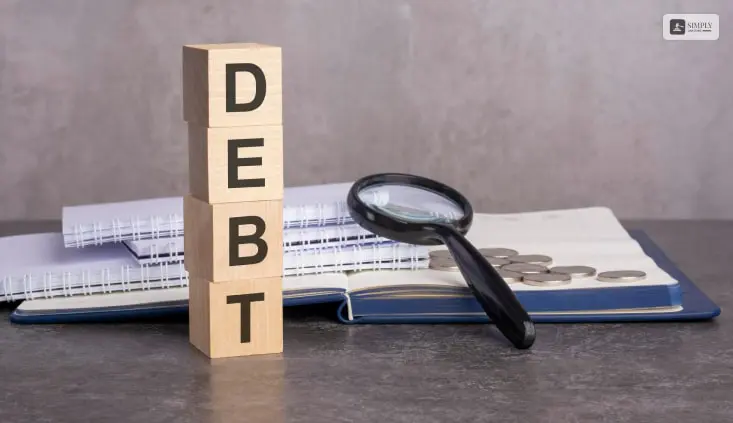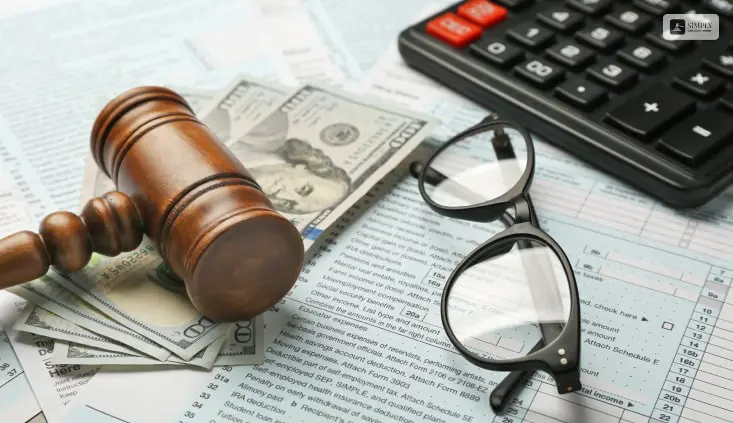
The total household debt in the USA has seen an increase in the very first quarter of 2023 itself. With more debts come financial and legal consequences. To help you out, in this article, we discuss all you need to know about debt, debt laws of the land, and a debt attorney.
What is debt?

Debt or personal debt, in this case, is usually money that was borrowed by an individual due to various reasons. One may need to borrow money due to insufficient funds to pay off medical or student bills. Going into debt is a pretty common occurrence and often more manageable than thought.
Who is a debt lawyer?

A debt attorney or a debt lawyer knows their way around the legal system primarily the debt laws of the land. Their job is to make sure you overcome any debt-related legal trouble. They carefully assess your financial state and come up with effective solutions.
In simple words, a debt attorney is someone who has the credentials, skills, and knowledge to help customers clear their debts. There are certain areas in which there is no need for them. Like, you don’t need a debt lawyer to win a debt collection lawsuit. But one will certainly seek their help for sorting debt-related troubles.
You don’t need an attorney to tell you about the FDCPA violations list. But you certainly need them when it comes to getting you free from all kinds of debts. In the next section of this article, you will discover more about them.
What protects you from the unfair practices of debt collectors?

Well, the perfect answer to this question would be a good debt lawyer. However, a debt lawyer only operates under the purview of powers bestowed upon him by the Constitution of the United States of America and various other debt laws of the land.
Some worthy mentions include:
Consumer Credit Protection Act of 1968 (CCPA)
The Consumer Credit Protection Act (CCPA) was passed in the year 1968. It is a piece of federal legislation that functions to protect consumers who are in debt from banks, have credit card debts, or other creditors.
This very important piece of legislation stipulates
- It is mandatory to disclose any and all requirements to be followed by the personal lenders or other financial institutions that give out loans.
- This list has expanded significantly since its inception (1968) for the benefit of the one in debt.
- This act sets up a system of fair reporting of financial information, prohibition of false advertising, and also discrimination by lenders on the basis of religion, color, sex, gender, nationality, or economic status.
- The CCPA was passed with the aim of establishing a very transparent system where the borrowers were very clear about the terms of the loan and the consequences of a default. The financial terms which may often seem complicated to the borrower were to be well-explained by the lender.
This consumer-centric approach of the Act has often been appreciated by the common man.
Fair Debt Collection Practices Act (FDCPA)
- When it comes to the protection of the borrower from unfair debt collection practices, the Fair Debt Collection Practices Act (FDCPA) is the gospel.
- It is a statute of federal law that lays down guidelines against unfair debt collection practices.
- The FDCPA works by prohibiting harsh, false, and abusive steps taken by debt collectors.
- It makes sure that organizations abide by ethics and fair means while collecting debt from borrowers.
- The Act prohibits third-party debt collectors from employing deceptive malpractices to collect debts taken for personal or household purposes.
- Contacting the borrower at odd hours, calling them repeatedly, threatening unfair legal action, or even revealing their personal information to others- these malpractices have been strictly prohibited under the purview of this Act.
What do debt lawyers do?

In recent times, debt lawyers have become increasingly more important figures. Household debts, credit card debts, student debts, and auto loan debts have jumped in rates reaching over one trillion dollars. With the sharp increase in money owed, debt collectors are seen resorting to harsh and often unfair practices.
This is where the role of a debt lawyer comes into question.
- They offer adequate legal representation to the client.
- They make sure that the client is well aware of their rights and the debt laws of the land.
- If the default were to escalate into a case lodged in court, the debt attorney can promptly come up with compelling arguments to avoid persecution.
- A debt lawyer will also make sure to prepare a strong case against any such collector who has clearly broken the debt laws of the land and harassed their client.
How much does a debt lawyer cost?

A debt lawyer can cost around $125 to $350 per hour depending on where you live and what the facts of your case are. Many reputed law firms provide Pro Bono debt consultations, and one can try an in-person visit to better understand where their case may lead. It is always advised that one should get a written estimate of how much the case may cost after the completion of the services.
However, before hiring a debt attorney, one must weigh the consequences of the short-term costs and the long-term cost of a court battle.
When should you hire a debt attorney?

- If you are already in bad debt and are struggling to make ends meet following might look like good options to you:
- It is best to try coming up with legal and logical solutions to your own debt problem if possible.
- Considering Pro Bono in-person consultation or non-profit counseling advice are the next best options.
- These non-profit organizations function in a manner where they often cover the court expenses for clients in need and also come up with a suitable solution to the debt problem.
- If the lender is threatening extreme legal action it may be best to find yourself a bankruptcy attorney or debt lawyer. These are the circumstances under which one can consider serious legal assistance.
- Continuous phone calls from the debt collector threaten the safety and breach your rights to privacy.
- The nonprofit organizations are not being of much assistance.
- You are getting threats of lawsuits, getting abused or threatened with physical harm.
- Your possessions have been illegally confiscated by your debt collector.
- If the lender is threatening extreme legal action it may be best to find yourself bankruptcy services in Georgia or a debt lawyer. These are the circumstances under which one can consider serious legal assistance.
Wrapping It Up!
Before approaching a lawyer, it is best to go over the facts of your case and decide if the creditor has legitimate legal standing. If you can benefit from standard legal loopholes such as:
- The statute of limitations having run out,
- The creditor having lost necessary documentation, or
- The case being filed in the wrong court.
Go ahead and hire a debt attorney as that might work out well for you. However, keeping track of all paperwork, expenditure, contant logs, or any other forms of communication is a good precautionary measure.


